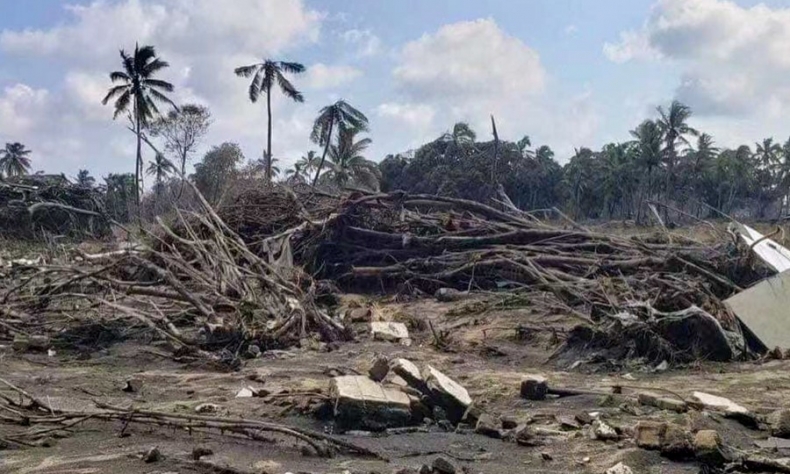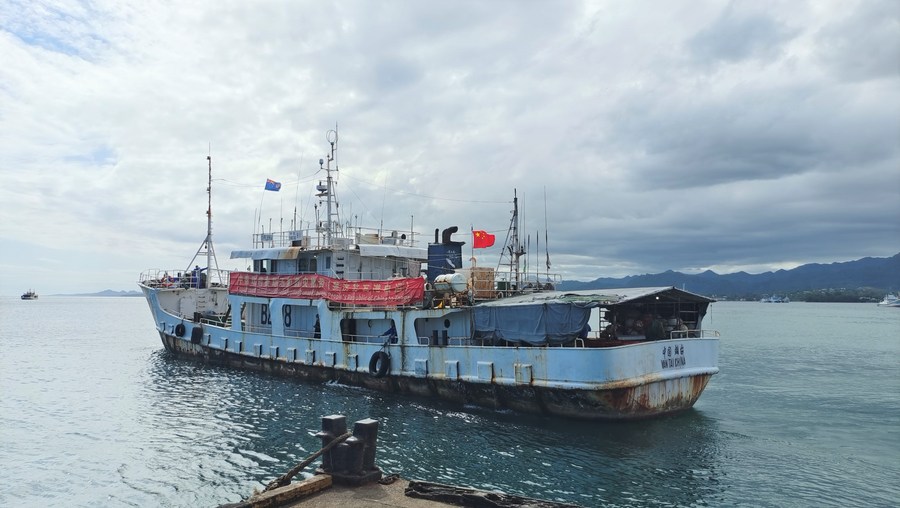Ramp up Aid for Tonga

Disasters are a product of the world we live in, but how we deal with them, mitigate their impacts, and move forward is what counts.
Tonga is a tropical archipelago nation situated deep into the South Pacific. It is home to a population of just 105,000. Tongans are known for their spirituality and humility, yet otherwise respectful nature. Yet this country has been struck by tragedy over the past week due to a mighty volcanic eruption.
The eruption was so powerful that it could be heard thousands of miles away. A subsequent tsunami caused unprecedented damage on a scale that is not yet clear, severing its internet access and cutting it off from the outside world. The death toll remains unknown. However, it is already clear that in some areas such as “Mango Island,” all housing has been destroyed. There are warnings of food and drinking water shortages, too, with mountains of volcanic ash having ruined supplies.
People have been affected by the loss of houses, communication, and lack of clean water as the sources have been polluted, and the water systems are down. Therefore, we can say that Tonga is a humanitarian emergency.
However, the bigger problem is how much the world is willing to help. China has sent condolences to the island’s King and pledged to help, and it shipped relief supplies worth 1 million yuan ($157,900) on Monday from Fiji to Tonga. Other countries in the region have also pledged support in giving essentials.

However, these are only short-term incentives to offer relief, and the country needs a long-term solution. Tonga requires a comprehensive rebuilding and investment in its national infrastructure in the wake of the damage. On paper, this should not be too much to ask the world, not least as its population does not even reflect that of a small-sized city. Yet, it is easy for these countries to be simply forgotten about in the long run. As the immediate catastrophe offsets, the disaster still may cause permanent damage to the quality of life.
In 2010, the devastating earthquake in Haiti was met with a global relief effort, and it was given plenty of backing by the international community. However, a decade later, we can see that the disaster has taken a permanent toll on the country, and it has never recovered economically. It is easy to offer short-term support such as food, water, and other things. Still, it is another story to assist in the comprehensive rebuilding of a nation facing unprecedented destruction.
As a result, rebuilding Tonga is a long-term and multilateral project. It has to be an open, inclusive, and cooperative effort that places the country’s best interests at heart and helps it recover in the short term and establish its future. Disasters are a product of the world we live in, but how we deal with them, mitigate their impacts, and move forward is what counts.
 Facebook
Facebook
 Twitter
Twitter
 Linkedin
Linkedin
 Google +
Google +







